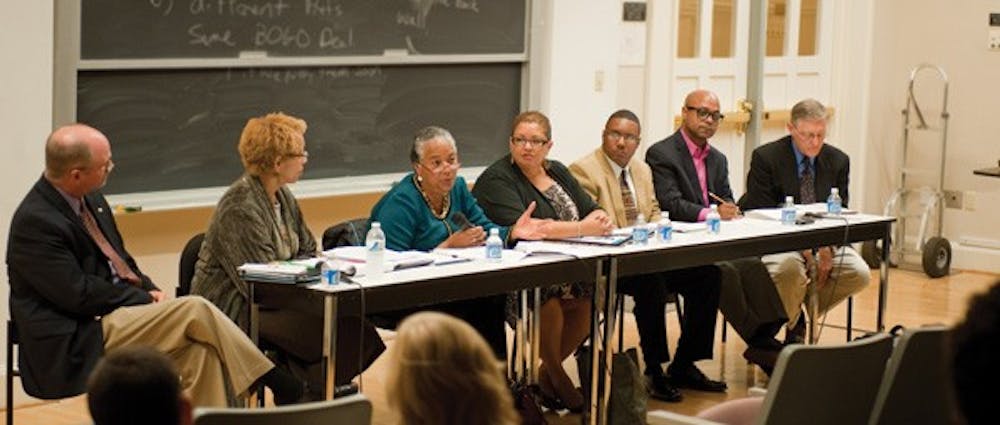Professors discussed the broad implications of the politics of the debt ceiling last night on a panel sponsored by the Carter G. Woodson Institute for African-American and African Studies.
The panel consisted of speakers from various backgrounds in African American studies and politics and was part of "Currents in Conversation," a series aimed at bringing members of the University community together to discuss recent headlines.
Each speaker highlighted an aspect of the debt-ceiling crisis.
Politics Prof. James Savage looked at the current debt crisis in the context of history.
"Debts and deficits have always been a part of American politics," he said. "It's how you talk about budget deficits that make a difference."
Savage said the problem is that politicians do not know how to talk about the budget deficit, which is currently at $1.2 trillion.
"The Democratic Party has not wanted to talk about budget deficits since Lyndon Johnson because the Democrats are the ones that have to tell [Americans] why budget deficits are good," he said.
Assoc. Prof. Andrea Simpson, chair of the political science department at University of Richmond and a University alumna, focused on the idea that the United States is currently at an ideological crossroads because of the debt crisis.
"All of us should care about [the debt crisis] because the talk is keeping us away from the real issue," she said. "This is a crossroads of political ideology ... There's no big deal about raising the debt ceiling. I'm surprised that so much angst was caused by something that is done all the time."
Simpson said the American public has stopped talking about where the debt has come from and has become jaded by all of the surrounding dialogue.
"I'm a political scientist and I find myself unable to articulate everything sometimes because the whole discourse is so bizarre to me," she said. "We're at a serious ideological and power struggle."
Deborah McDowell, director of the Carter G. Woodson Institute, said she hopes students "will gain information and knowledge of a topic of great consequence to our nation" from attending the event.
Graduate Arts & Sciences student Mary Barton appreciated the lecture.
"I'm glad we had this conversation, and I think it's important to talk about the issues and topics that were discussed," she said.







